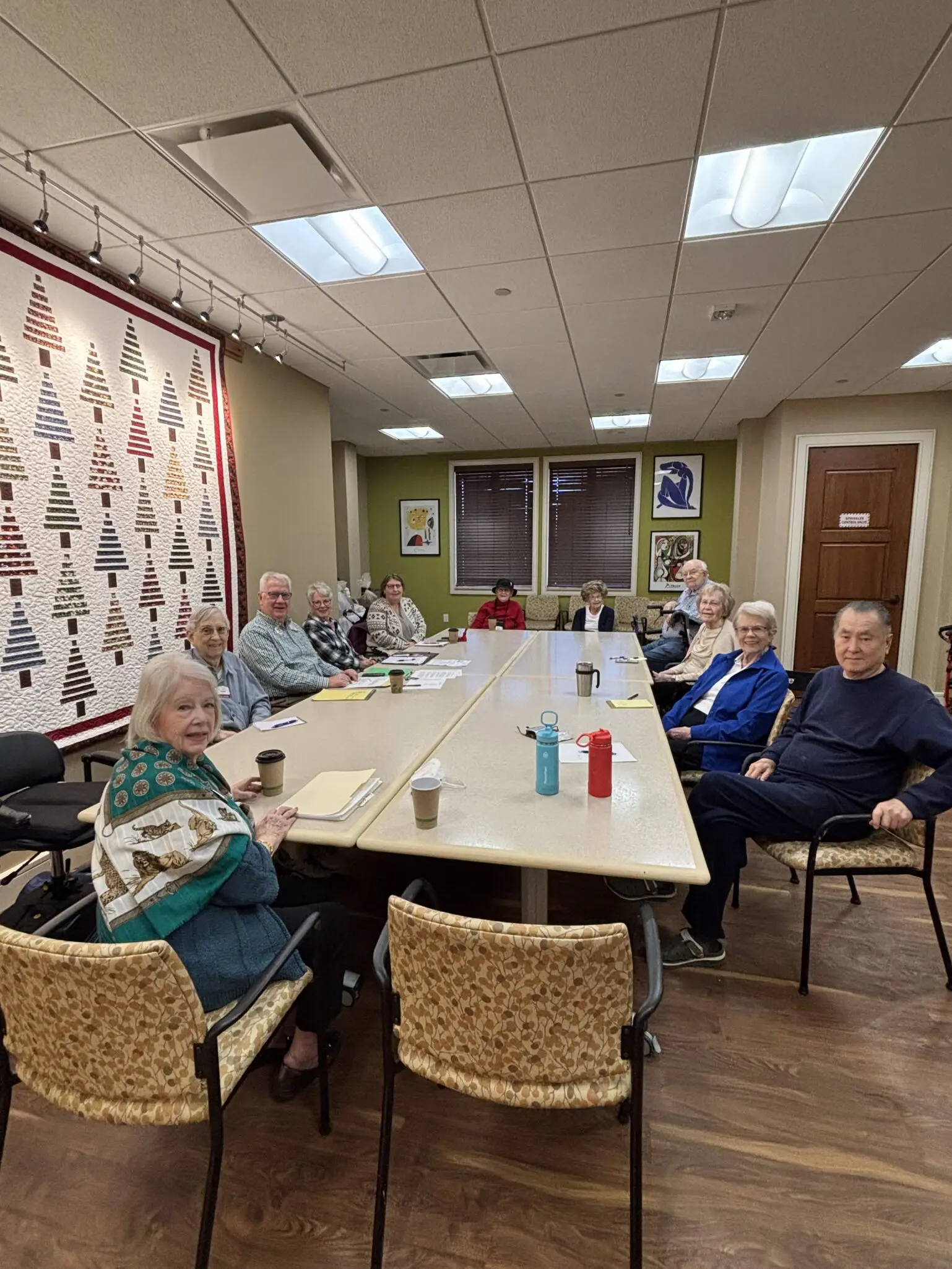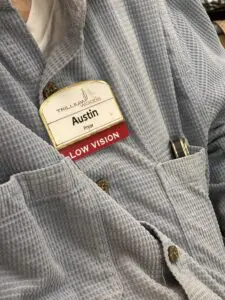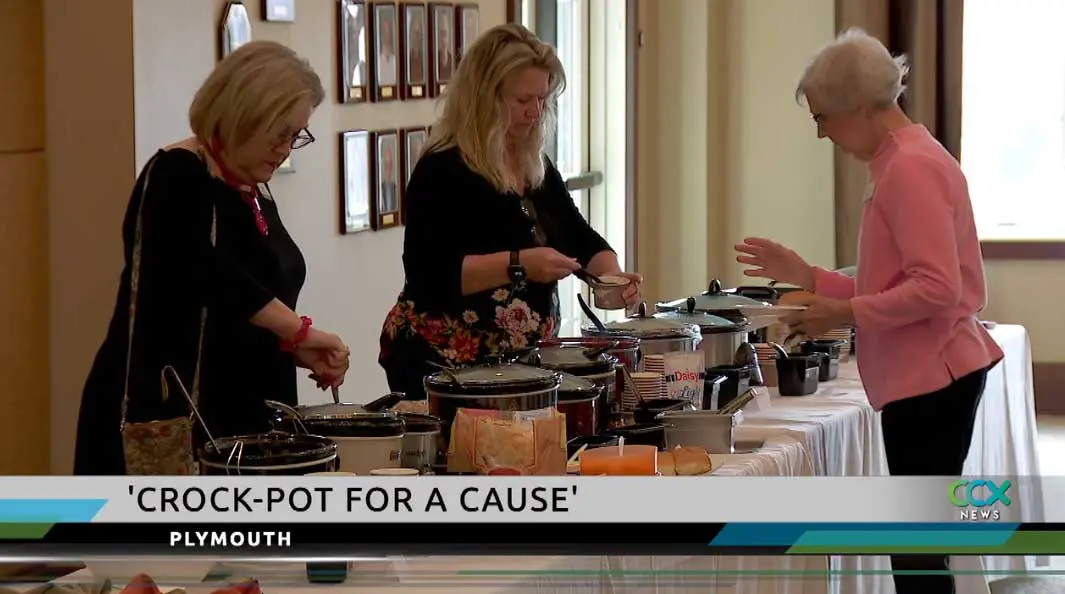
Trillium Woods’ Low-Vision Information Group Helps Residents Connect and Persevere
Vision loss can be an isolating and challenging experience, but for residents of Trillium Woods, it’s also an opportunity to connect, learn, and self-advocate. Since its inception at Plymouth, MN’s premier senior living community in 2022, the Low-Vision Information Group has been an invaluable source of support for residents facing various degrees of visual impairment.
From Diagnosis to Action: Building the Group
“The Low-Vision Information Group began after a presentation by Renee Waclaw, a Community Service Specialist from Vision Loss Resources,” explains David Nyce, who co-chairs the group with fellow resident Richard Flom. Inspired by her message, several residents approached Waclaw to establish regular meetings. Today, the group meets monthly with an average attendance of 12-15 people. Waclaw facilitates these sessions, bringing tools, resources, and thought-provoking questions that guide discussions.
While originally branded as a support group, the members quickly reframed their identity as an information-sharing collective — a subtle but empowering shift that underscores their mission to educate and engage both within and beyond their community.
Sharing Knowledge and Tools
Members of the group, many of whom have conditions like macular degeneration and glaucoma, share personal stories and practical tips for navigating daily life with low vision. These discussions range from the use of magnifiers and audio books to adaptive tools like liquid level indicators that prevent spills when pouring beverages — an everyday task that can become increasingly tricky when depth perception is lost.
Educating and Advocating

Members regularly advocate for greater awareness within Trillium Woods, encouraging fellow residents to identify themselves by name when greeting someone with low vision. They’ve even used a role-playing scenario during a community-wide presentation to illustrate the invisible nature of vision loss and the challenges it creates in social interactions.
“When someone’s using a walker, an electric cart, or walking with a cane, you can see they have disabilities — but you can’t see that someone has vision loss,” explains Flom, who has macular degeneration. “To show that sometimes we see the body toward us, but can’t recognize the face, we acted out walking down the hall and with another person walking toward us and they say ‘hi’ and I say ‘hi’ and then I turn to my wife after we get past and I say, ‘who was that?’ The audience all of a sudden got it and now many people are very good about when I’m walking down the hall or they’re coming towards me, they’ll say, ‘hi, Richard, I’m Rick.’
Additionally, the group has successfully lobbied for practical changes at Trillium Woods, such as improved lighting in communal areas. Nyce and Flom both wear buttons or name tag stickers reading “Low Vision” as conversation starters, fostering understanding among neighbors.
Beyond the Group: Resources and Outreach
The Low-Vision Information Group connects members to a wealth of external resources, including Minnesota State Services for the Blind and national mobility and guide dog organizations. Waclaw’s facilitation has also brought projection systems for reading to the Trillium Woods library, ensuring better access for residents with low vision.
The group has partnered with other organizations and events to broaden their reach, such as an upcoming presentation by a legally blind artist who continues to create stunning works despite his challenges.
The Emotional Journey
For many, adjusting to vision loss isn’t just a practical challenge but an emotional one. Nyce has moments of grief and frustration as he copes with the changes brought on by macular degeneration, but he draws inspiration from peers who have overcome similar struggles. “It’s easy to feel depressed,” he shares, “but seeing what others can do challenges me to get over it and learn to live with what I have.”
The fellowship found in the Low-Vision Information Group exemplifies the supportive, welcoming, and warm home that is Trillium Woods. It’s where neighbors help neighbors within a supportive community that empowers everyone to thrive.





